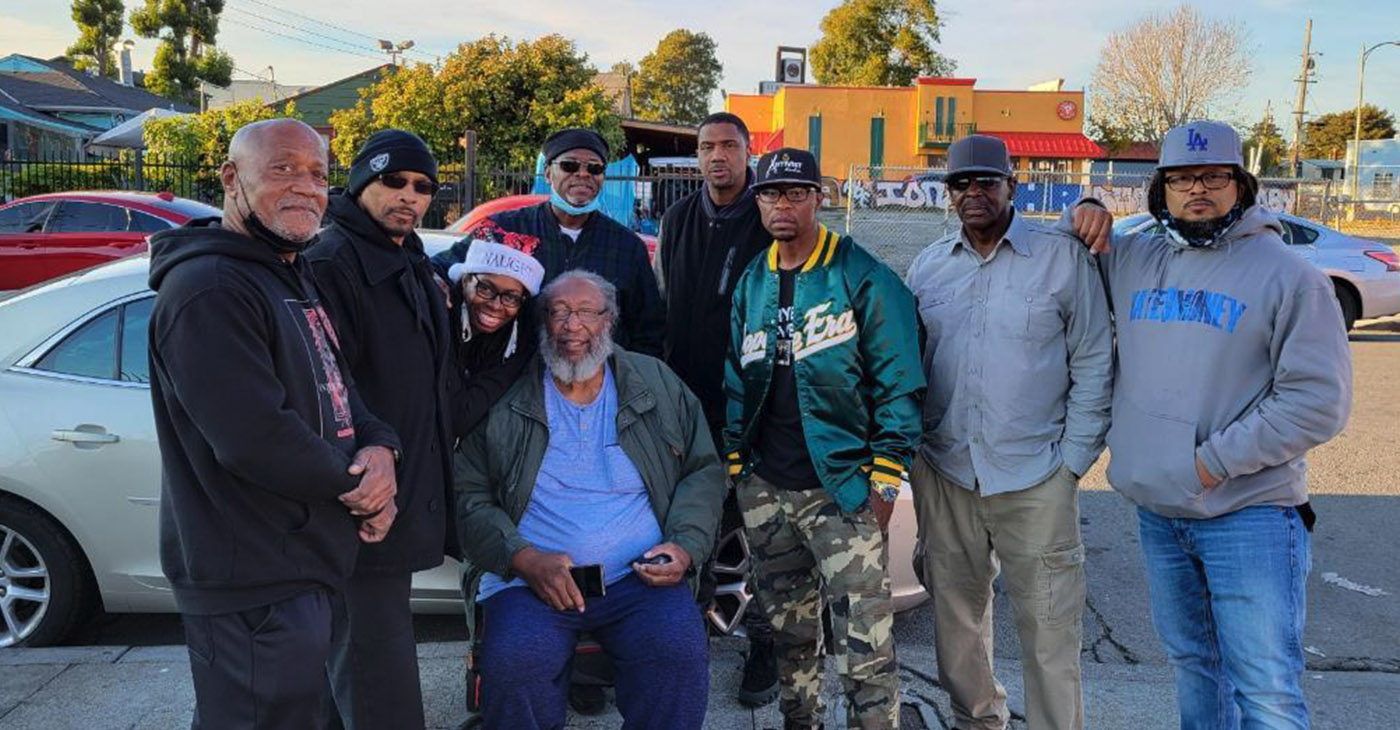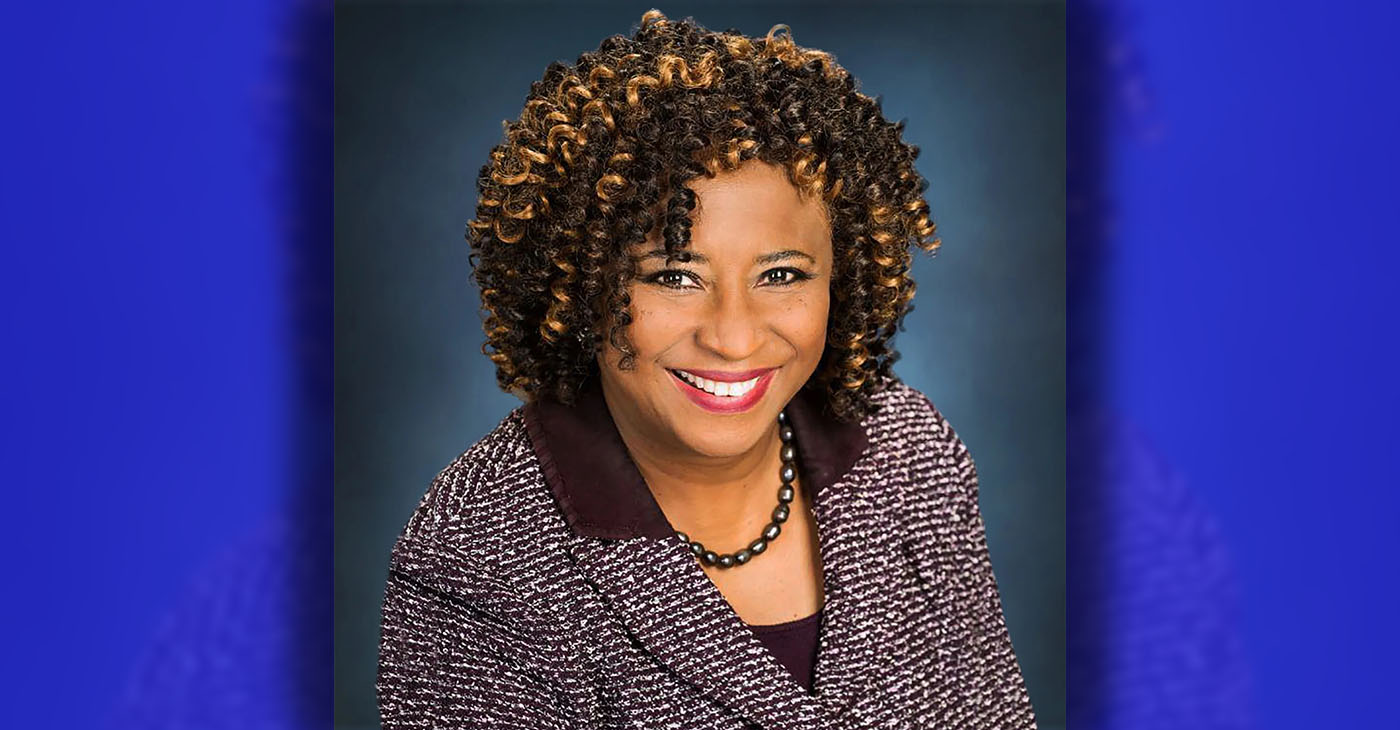Alameda County
Guns Don’t Kill People, But People Pull the Triggers
When I heard that the Oakland Post was publishing a notice of a rally for D.A. Pamela Price at the Alameda County Courthouse Sunday, April 23 at 4:00 p.m. I told the publisher that I would invite some members of our newly formed organization, “Formerly Incarcerated Giving Back,” to attend the rally to show that we want to help rebuild trust and repair some of the harm that we caused to crime victims.

By Richard Johnson
When I heard that the Oakland Post was publishing a notice of a rally for D.A. Pamela Price at the Alameda County Courthouse Sunday, April 23 at 4:00 p.m. I told the publisher that I would invite some members of our newly formed organization, “Formerly Incarcerated Giving Back,” to attend the rally to show that we want to help rebuild trust and repair some of the harm that we caused to crime victims.
I plan to speak to as many people as possible that it is time for us to tell others, especially our youth, to lay down their guns and roll up their sleeves to work for positive change.
Given the recent upsurge in gun violence and random shootings, I have written this column for us to understand the dangers and costs associated with the proliferation of guns and why we must do something about it.
“Guns don’t kill people; people kill people,” is a slogan by the National Rifle Association. This statement seems self-serving for those who wish to pass the buck and not deal with reality: Guns are the tools that kill people, but it’s people who pull the triggers.
People kill for various reasons: mental health, hatred, gangs, drugs, or domestic violence, but when you remove the guns, the death toll drops significantly.
Furthermore, restricting gun access doesn’t eliminate the people’s Second Amendment constitutional right to keep and bear arms — on the contrary, what it can do is curb access to high-powered guns capable of mass murder, making it very hard for these guns to fall in the hands of people determined to kill people.
When you curb access, you minimize potential senseless killing by people with guns. Even though people have a right to arm and protect themselves, they also are expected to regulate their behavior and be responsible law-abiding citizens.
I firmly believe that those who stand in opposition to safer streets with fewer guns on them are catering to big business and politicians with ulterior motives.
The increased media attention is revealing to us that almost daily some people tend to snap, which often ends with some form of violence.
In the many countries where guns aren’t as easily obtained as they are here in the U.S. are not free of violence — it demonstrates that guns aren’t the main weapons used to inflict harm.
Our country has gunrunners importing and exporting weapons regularly. (I recently heard that a woman purchased more than 50 guns for a street gang she had ties to; chances are this isn’t an anomaly.)
Just like drugs, when you remove certain guns or make it harder to purchase deadly weapons, chances are fewer people will die by guns.
The proliferation of weapons capable of mass murder keeps our prisons, hospitals, graveyards, funeral homes, courts, probation, parole workloads, and much more filled to capacity.
When I saw that Ralph Yarl, a 16-year-old boy who went to the wrong address in Kansas City, Mo., to pick up his younger siblings and was shot for ringing a doorbell, I thought of my son and the children of mothers and fathers of all races who worry for their safety.
Let’s remember the messages of the singer Freda Payne “Bring the boys home, bring them back alive, it’s time to turn this ship (of state) around, lay your weapons down ….Can’t you see them trying to get home?”
Activism
Who are the Alameda County District 4 Supervisor Candidates’ Top Campaign Contributors?
Below, we’ve listed each candidate’s 10 highest campaign contributors. For Miley, two of his top campaign donors also bought their own advertisements to support him and/or oppose Esteen through independent expenditures. Such expenditures, though separate from campaign donations, are also public record, and we listed them. Additionally, the National Organization of Realtors has spent about $70,500 on their own independent expenditures to support Miley.

By Zack Haber
Nate Miley, who has served on Alameda County’s Board of Supervisors since 2000, is running for reelection to the District 4 supervisor seat.
Jennifer Esteen, a nurse and activist, is seeking to unseat him and become one of the five members of the powerful board that sets the county’s budget, governs its unincorporated areas, and oversees the sheriff, Alameda Health System, and mental health system.
District 4 includes most of East Oakland’s hills and flatlands beyond Fruitvale, part of Pleasanton and unincorporated areas south of San Leandro like Ashland and Castro Valley.
Voting is open and will remain open until March 5.
In California, campaign donations of $100 or more are public record. The records show that Miley has received about $550,000 in total campaign donations since he won the previous District 4 election in March 2020. Esteen has raised about $255,000 in total campaign donations since she started collecting them last July. All figures are accurate through Feb. 20.
While Miley has raised more money, Esteen has received donations from more sources. Miley received donations of $100 or more from 439 different sources. Esteen received such donations from 507 different sources.
Below, we’ve listed each candidate’s 10 highest campaign contributors. For Miley, two of his top campaign donors also bought their own advertisements to support him and/or oppose Esteen through independent expenditures. Such expenditures, though separate from campaign donations, are also public record, and we listed them. Additionally, the National Organization of Realtors has spent about $70,500 on their own independent expenditures to support Miley.
Nate Miley’s top campaign contributors:
The California Apartment Association, a trade group representing landlords and investors in California’s rental housing business, has spent about $129,500 supporting Miley’s election bid through about $59,500 in ads against Esteen, $55,000 in ads supporting Miley, and $15,000 in campaign donations.
The independent expenditure committee Preserve Agriculture in Alameda County has spent about $46,025 supporting Miley through about $27,200 in their own ads, and $18,825 in donations to his campaign. Preserve Agriculture has supported reelection efforts for former Alameda County DA Nancy O’Malley, and Sheriff Greg Ahern, a republican. It’s received funding from Chevron, PG&E, and a the California Apartment Association.
Organizations associated with the Laborers’ International Union of North America, or LiUNA, have donated about $35,000 in total. Construction and General Laborers Local 304, a local chapter of the union representing which represents over 4,000 workers, donated $20,000.
Laborers Pacific Southwest Regional Organizing Coalition, which represents 70,000 LiUNA members in Arizona, California, Hawaii and New Mexico, donated $15,000.
William ‘Bill’ Crotinger and the East Oakland-based company Argent Materials have donated $26,000. Crotinger is the president and founder of Argent, a concrete and asphalt recycling yard. Argent’s website says it is an eco-friendly company that diverts materials from landfills. In 2018, Argent paid the EPA $27,000 under a settlement for committing Clean Water Act violations.
Michael Morgan of Hayward, owner of We Are Hemp, a marijuana dispensary in Ashland, has donated $21,500.
Alameda County District 1 Supervisor David Haubert has donated $21,250 from his 2024 reelection campaign. He’s running unopposed for the District 1 seat.
SEIU 1021, which represents over 60,000 workers in local governments, non-profit agencies, healthcare programs, and schools in Northern California, has donated $20,000.
UA Local 342, which represents around 4,000 pipe trades industry workers in Contra Costa and Alameda counties, donated $20,000.
The union representing the county’s deputy sheriffs, Deputy Sheriff’s Association of Alameda County, has donated $17,000.
Becton Healthcare Resources and its managers have donated $14,625. Becton’s mission statement says it provides “behavioral health management services to organizations and groups that serve the serious and persistent mentally ill population.”
Jennifer Esteen’s top campaign contributors:
Mary Quinn Delaney of Piedmont, founder of Akonadi Foundation, has donated $20,000. Akonadi Foundation gives grants to nonprofit organizations, especially focusing on racial justice organizing,
Bridget Galli of Castro Valley has donated $7,000. Galli is a yoga instructor and a co-owner of Castro Valley Yoga.
Rachel Gelman of Oakland has donated $5,000. Gelman is an activist who has vowed to redistribute her inherited wealth to working class, Indigenous and Black communities.
California Worker Families Party has donated $5,000. The organization’s website describes itself as a “grassroots party for the multiracial working class.”
David Stern of Albany has donated $5,000. Stern is a retired UC Berkeley Professor of Education.
Oakland Rising Committee—a collaborative of racial, economic, and environmental justice organizations—has donated about $3,050.
Fredeke Von Bothmer-Goodyear, an unemployed resident of San Francisco, has donated $2,600.
Robert Britton of Castro Valley has donated $2,500. Britton is retired and worked in the labor movement for decades.
Progressive Era PAC has donated about $2,400. Its mission statement says it “exists to elect governing majorities of leaders in California committed to building a progressive era for people of color.”
East Bay Stonewall Democrats Club has donated $2,250. The club was founded in 1982 to give voice to the East Bay LGBTQIA+ communities.
Alameda County
Michael P. Johnson Garners Major Support in Run for Alameda County Superior Court Judge
Michael P. Johnson is running for Alameda County Superior Court Judge, Seat 12, after having been appointed as a temporary judge over the past five years. Hon. Charles Smiley, presiding judge of the Alameda County Superior Court, said he had “personally observed Michael’s professionalism as judge pro tem, and his work as a pro tem judge ranks among the finest in our country.”

By Post Staff
Michael P. Johnson is running for Alameda County Superior Court Judge, Seat 12, after having been appointed as a temporary judge over the past five years.
Hon. Charles Smiley, presiding judge of the Alameda County Superior Court, said he had “personally observed Michael’s professionalism as judge pro tem, and his work as a pro tem judge ranks among the finest in our country.”
As a resident of Alameda County for over 30 years, Johnson served as assistant vice president and senior counsel for AT&T and Warner Media.
Johnson said, “For decades, I have been an active member of the Alameda County Bar Association (ACBA) as well as the ACBA’s non-profit Volunteer Legal Services Corp. (now, Legal Access Alameda).
“I have been honored to have served as the president of the Board of Directors for both organizations. I am a lifetime member of the Charles Houston Bar Association, a non-profit organization comprised of African American lawyers, judges, and law students throughout Northern California.”
Hon. Winifred Y. Smith (ret.), a past presiding judge for the county said, “The Alameda County Superior Court needs Michael Johnson. He is smart, has great judicial temperament and is a man of the community. I have known Michael for over 15 years and can attest to his qualities and qualifications to serve on the Alameda County Superior Court bench.”
Johnson told the Post that he was also a member of CABL (California Association of Black Lawyers) as well as the National Bar Association (a global network of African American attorneys and judges) and the American Bar Association.
Alameda County
To Fight Surge in Crime, Gov. Newsom Deploys State Law Enforcement to East Bay
Responding to a surge in crimes in the region, Gov. Gavin Newsom announced on Feb. 6 that he is temporarily increasing state law enforcement personnel in Oakland and the East Bay. About 120 California Highway Patrol officers are being deployed in the operation – about a 900% increase, according to the Governor’s office.

Responding to a surge in crimes in the region, Gov. Gavin Newsom announced on Feb. 6 that he is temporarily increasing state law enforcement personnel in Oakland and the East Bay.
About 120 California Highway Patrol officers are being deployed in the operation – about a 900% increase, according to the Governor’s office.
“As crime rates across California decrease — including right across the Bay in San Francisco — Oakland is seeing the opposite trend,” said Gov. Newsom.
“I’m sending the California Highway Patrol to assist local efforts to restore a sense of safety that the hardworking people of Oakland and the East Bay demand and deserve.”
The CHP officers have been tasked with helping to reduce and prevent auto theft, cargo theft, retail crime, violent crime, and high-visibility traffic enforcement.
“I welcome the support from the Governor in this fight against organized retail crime and the scourge of Fentanyl in our community,” said Alameda County District Attorney Pamela Price. “I am assigning Alameda County career prosecutor Assistant DA Michael Nieto to represent my office in this collaborative effort.”
Oakland Mayor Sheng Thao called the surge in crime “unacceptable.”
“The City of Oakland is hard at work turning the tide — increasing law enforcement investigations, increasing police recruitment, and investing in community and violence intervention efforts,” said Thao. “As we work to improve public safety, I’m grateful for Governor Newsom for providing these critical law enforcement resources that are a game-changer in helping us hold more criminals accountable and make Oakland safer.”
-

 Activism4 weeks ago
Activism4 weeks agoOakland Post: Week of March 20 – 26, 2024
-

 #NNPA BlackPress3 weeks ago
#NNPA BlackPress3 weeks agoCOMMENTARY: D.C. Crime Bill Fails to Address Root Causes of Violence and Incarceration
-

 #NNPA BlackPress3 weeks ago
#NNPA BlackPress3 weeks agoMayor, City Council President React to May 31 Closing of Birmingham-Southern College
-

 #NNPA BlackPress3 weeks ago
#NNPA BlackPress3 weeks agoFrom Raids to Revelations: The Dark Turn in Sean ‘Diddy’ Combs’ Saga
-

 #NNPA BlackPress3 weeks ago
#NNPA BlackPress3 weeks agoCOMMENTARY: Lady Day and The Lights!
-

 #NNPA BlackPress3 weeks ago
#NNPA BlackPress3 weeks agoBaltimore Key Bridge Catastrophe: A City’s Heartbreak and a Nation’s Alarm
-

 #NNPA BlackPress3 weeks ago
#NNPA BlackPress3 weeks agoBaltimore’s Key Bridge Struck by Ship, Collapses into Water
-

 Activism3 weeks ago
Activism3 weeks agoOakland Post: Week of March 27 – April 2, 2024

















































